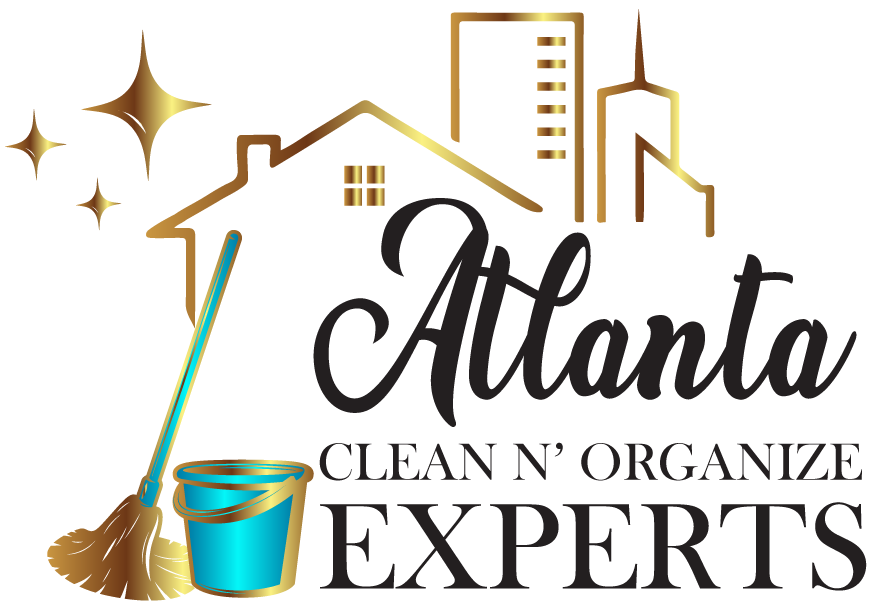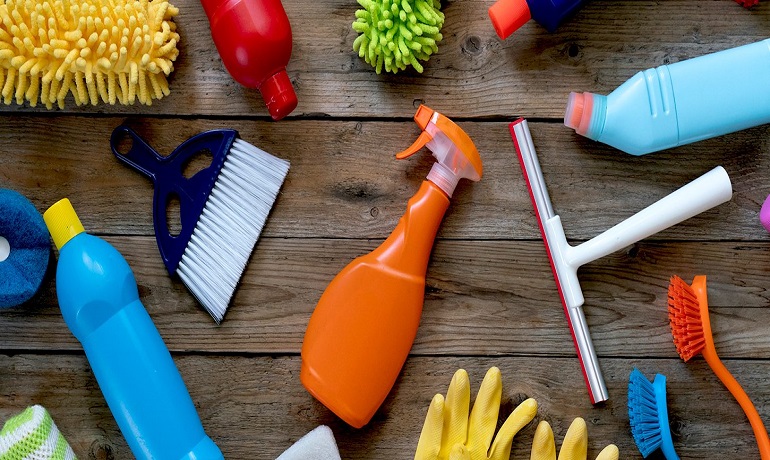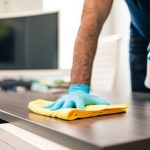To effectively tackle cleaning tasks, it’s essential to have the right tools at hand. Here are some necessary tools commonly used in cleaning jobs:
Cleaning Solutions:
A range of cleaning solutions, including all-purpose cleaners, glass cleaners, disinfectants, and specialized cleaners for specific surfaces or stains.
Microfiber Cloths:
These soft and absorbent cloths are ideal for dusting, wiping, and polishing surfaces. They are reusable and help trap dust and dirt effectively.
Mop and Bucket:
A mop and bucket are essential for mopping and sanitizing floors. Look for a mop with replaceable mop heads for hygiene purposes.
Vacuum Cleaner:
A reliable vacuum cleaner with attachments for different surfaces, such as carpet, hardwood floors, and upholstery. HEPA filters are recommended for improved air quality.
Broom and Dustpan:
Used for sweeping debris and dirt from hard floors or areas where a vacuum cleaner may not be suitable.
Scrub Brushes:
Various scrub brushes, including soft-bristle and stiff-bristle brushes, are useful for tackling tough stains, grout cleaning, and scrubbing surfaces that require extra attention.
Squeegee:
A squeegee is handy for cleaning windows, mirrors, and glass surfaces, leaving them streak-free and sparkling.
Gloves:
Protective gloves help safeguard your hands from harsh chemicals and hot water during cleaning tasks. Opt for durable, chemical-resistant gloves.
Spray Bottles:
Use spray bottles to store and apply diluted cleaning solutions for targeted cleaning on surfaces.
Extension Pole:
An extension pole allows you to reach high areas, such as ceiling fans, light fixtures, or tall windows, without the need for a ladder.
Step Stool or Ladder:
Depending on the height of your cleaning tasks, a step stool or ladder may be required for safe access to elevated areas.
Scraper or Putty Knife:
Helpful for removing stubborn stains, adhesive residue, or dried-on substances from surfaces without causing damage.
Dusting Tools:
Feather dusters, electrostatic dusters, or dusting wands can be effective for dusting high and hard-to-reach areas.
Protective Gear:
Consider wearing protective gear such as gloves, goggles, and masks when handling chemicals or dealing with potentially harmful substances.
Remember, the specific tools needed may vary depending on the cleaning tasks and surfaces involved. It’s important to have a well-stocked cleaning kit to ensure efficiency and thoroughness in your cleaning jobs.





